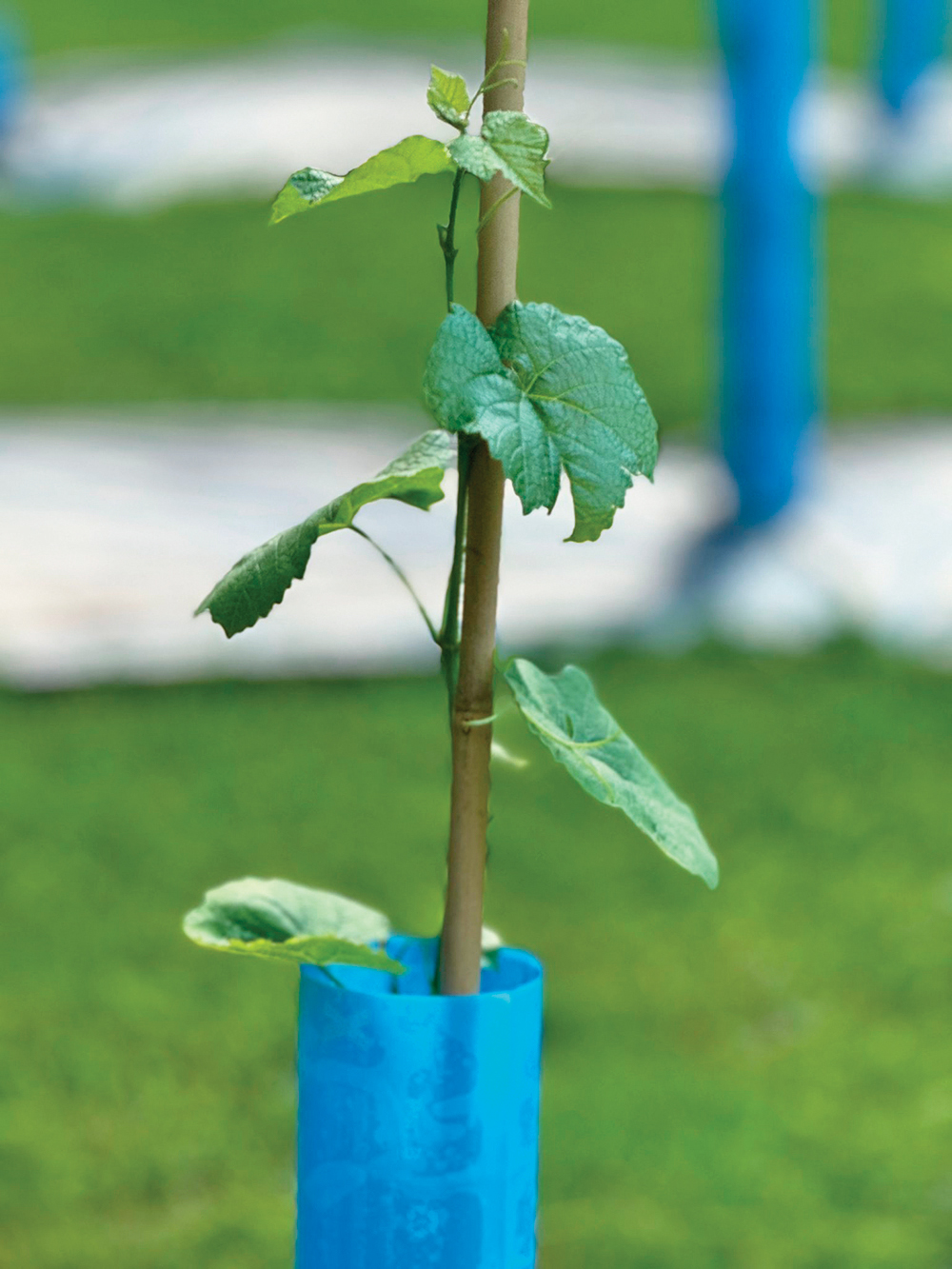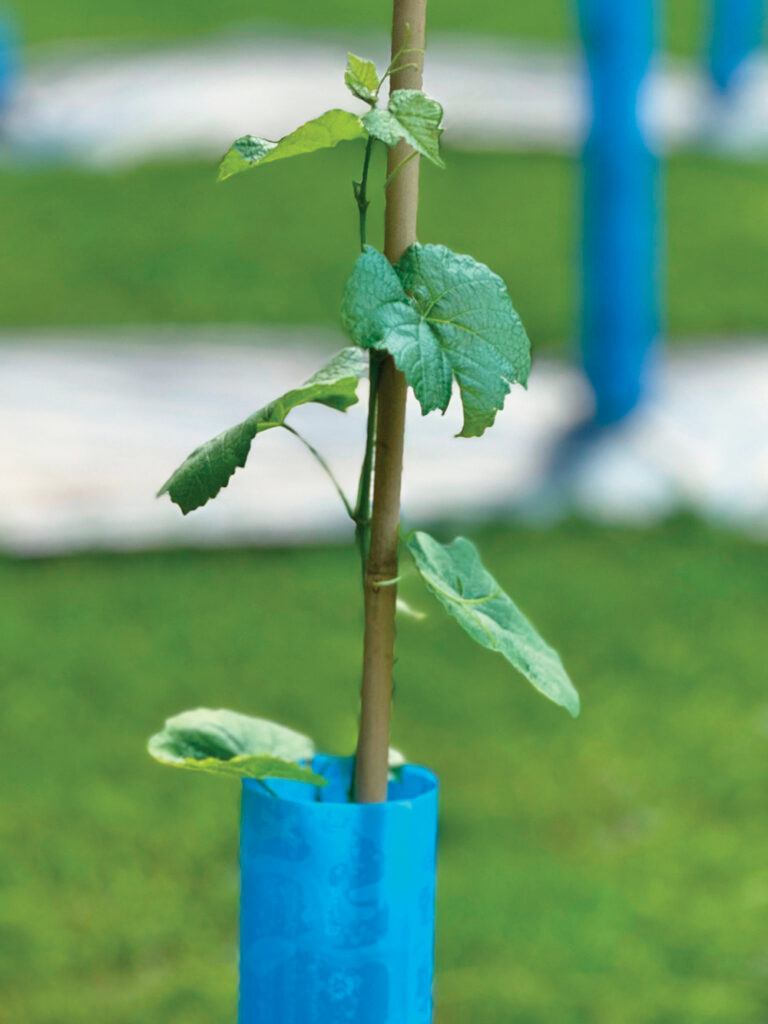
A historic winery in New City, New York is being brought back to life in a big way. While High Tor Vineyards has been defunct for 35 years, for 20 years its new kosher-keeping owner has been planning its new chapter.
Twenty years ago, in 2004, Marvin Baum, a digital imaging specialist turned event organizer, envisioned and worked on the Official Woodstock 35th Anniversary Celebration, where he first interacted with craft breweries and wineries as they donated their products to a museum exhibition launch at the New York state capitol. While it hardly follows that this experience would be his first step toward becoming a vineyard manager or viticulturist—and he certainly has no previous experience working in kosher wineries—he later gained significant experience in the food-event management space. Baum is the creator of The Chocolate Expo, a multi-city exposition event that launched in 2006 that features tastings and sales of chocolates, baked goods, specialty foods, cheeses, dairy products, craft beverages and ready-to-eat foods.
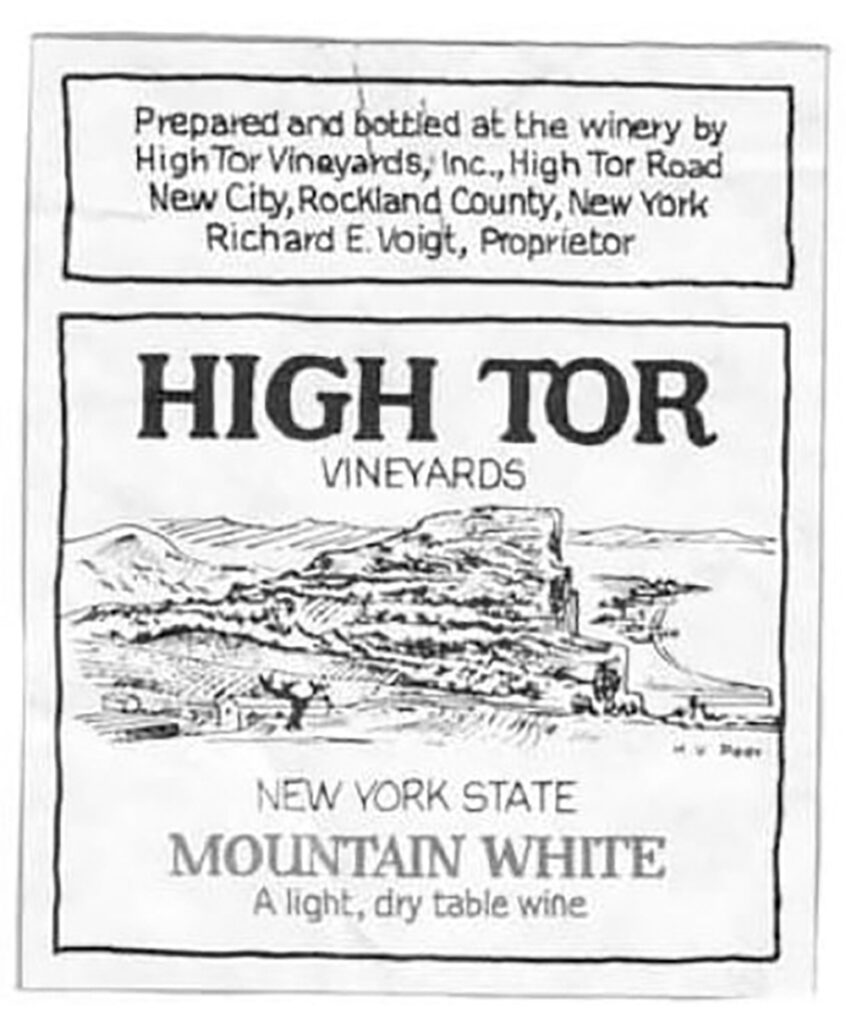
But it was around his time working on the Woodstock anniversary event that he got the idea to bring back High Tor Vineyards, a storied, historic winery originally owned by Voice of America writer Everett Crosby, based in New City, which first opened in 1949. Baum remembered being fascinated by wineries as a child and even visited Kedem Winery in Ulster County with his parents. He collected brochures from other New York wineries in earlier years.
“High Tor Vineyards was one of the early vineyards to work with French-American hybrid grapes in the U.S., including baco noir and seyval blanc. High Tor had a national reputation as one of the first premium wineries in the East. Some people in this area even like to say that New City was ‘Napa Valley’ before Napa Valley was ‘Napa Valley,’ which really started to develop its own reputation as the leading wine region in America during the 1960s and 1970’s,” said Baum.
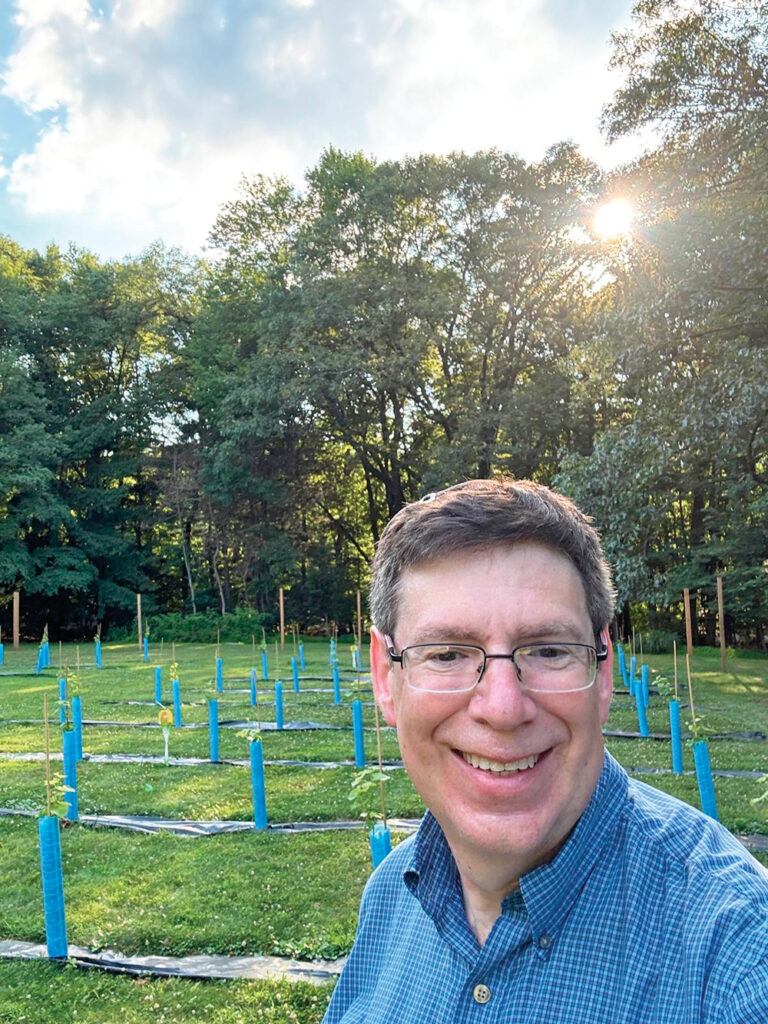
A side note on American varietals: Hybrids were created in France using splices of Vitis Vinifera grapes (the ones people hear about commonly, like chardonnay, merlot and cabernet sauvignon) with American native varieties. These grapes have thicker skins and are more adept at handling cold weather and have higher disease resistance to pests. They were developed to combat the phylloxera virus that tore through France in the 1800s, decimating approximately 70% of its vines. Phylloxera is a tiny insect that feeds off root stocks, killing them, and while it was found that American grapes were immune to phylloxera, many of these varieties also had what was considered unattractive odors and character, such as “foxiness,” a wild, musky, animal smell. Hybridization is thought to have both created immunity among standard French grape varieties and removed those unpleasant odor characteristics, and to this day the hybrids are used in root stocks the world over.
Finding the New Site for High Tor
By 2004 when Baum had his idea, he discovered that the original property had been incorporated into High Tor State Park since the 1990s, so it was no longer available. Despite the considerable lack of prospects or even a property location in mind, back in 2005 he bought the domain name HighTorVineyards.com. Then he watched and waited, all the while scanning real estate listings in New City.
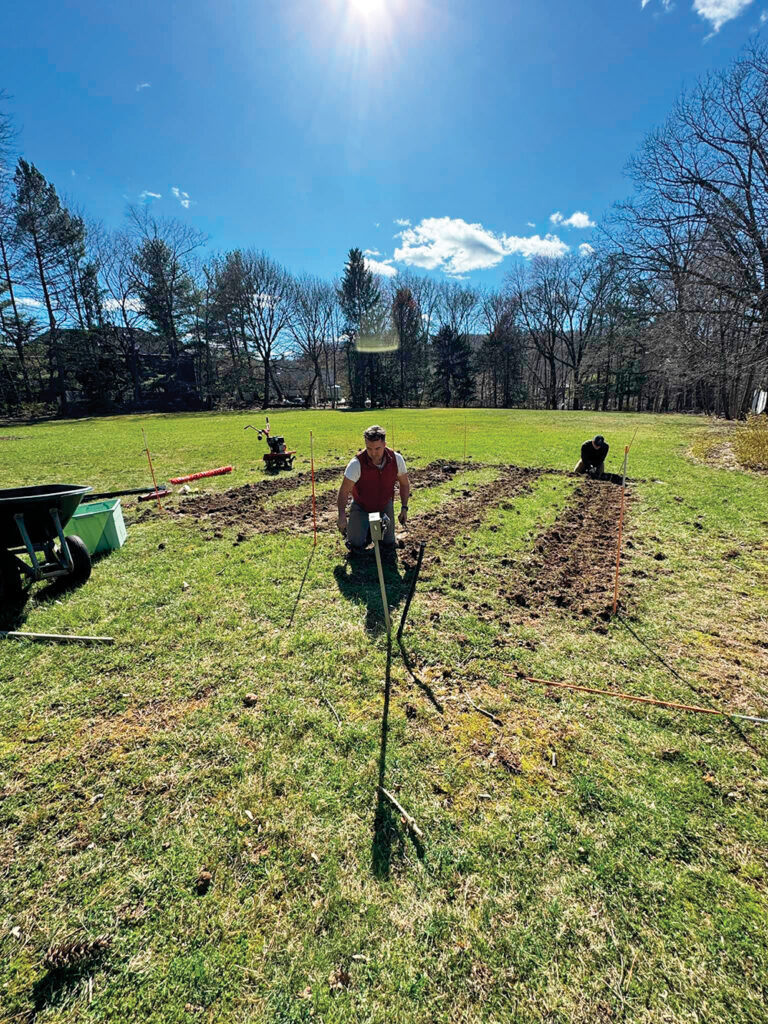
“In 2022, I finally saw a property for sale on just over three acres with two homes, one of which hadn’t been lived in for 20 years, except for raccoons and squirrels,” said Baum. Looking at the property, he saw real potential for a vineyard and winery.
“I went into the basement of the tear down house, which was being sold as is—basically for free—together with the other house, and I discovered seemingly ancient wine bottles covered in dust from the ‘Salowey Winery’ in wine racks that could hold several hundred bottles,” said Baum.
“At that point, I knew I found the right place for the new High Tor Vineyards, right on Little Tor Road, and just down the street from the original winery that was on High Tor Road.” Baum’s own residence and grounds, where he is planting another vineyard, are just over two miles away.
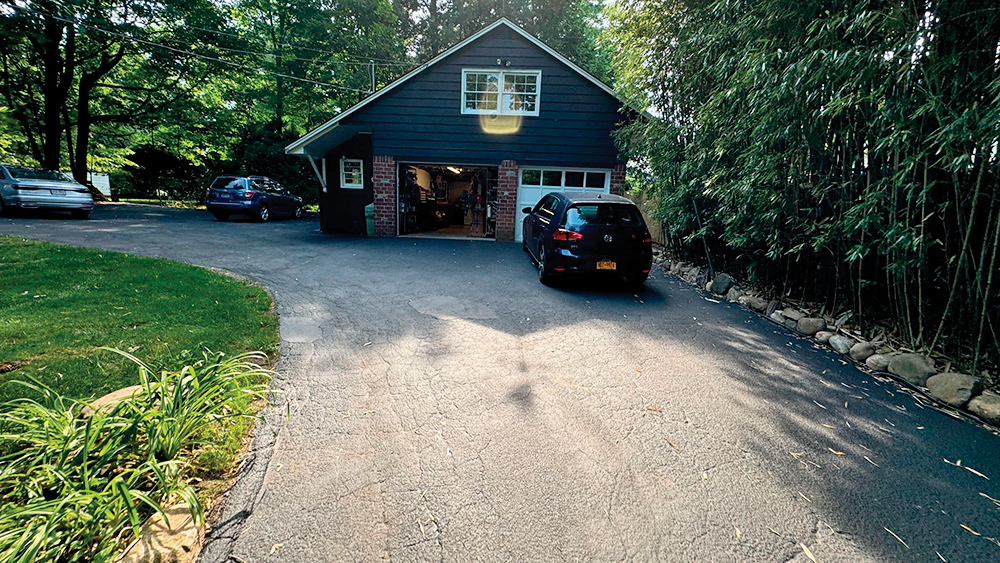
Baum hired engineers, architects and contractors to help reimagine that tear down house into the ultimate “cottage in the woods” and to take it from being a small 1,700-square-foot house with low ceilings into a big and spacious home with high ceilings and a great open floor plan that was ideal for entertaining, while converting the basement back into a unique speakeasy-style small-scale winemaking facility. “Additional production facilities for making larger quantities of wines will be created offsite, once I get past the experimental stage,” he said.
As Baum is a veteran event management professional, he’s also thinking of the space in terms of high-end private event opportunities. He is building a tasting room for retail sales and several multipurpose private event spaces. The new High Tor Vineyards will be among the fourth or fifth organic wineries on the East Coast and possibly the only kosher organic farm winery in the United States. Recently, Baum also entered into a contract to purchase the adjoining property, which, together with his own home and grounds, will increase the space available to almost five acres. “The additional property has a 1,400-square-foot stand-alone building that is bigger than my originally-planned 500-square-foot production and aging/storage space. The additional property will also dramatically improve access and parking, plus give me a 1,300-square-foot garden and fruit trees,” he said.
Baum has already hired several consultants and plans to partner with winemakers for production, and has been actively networking to lay the groundwork for offsite winemaking. “My focus is and will be on the vineyard and grape growing. I will be relying on others to produce the wines and other craft beverages at my direction, but will let them handle the actual production,” he added.
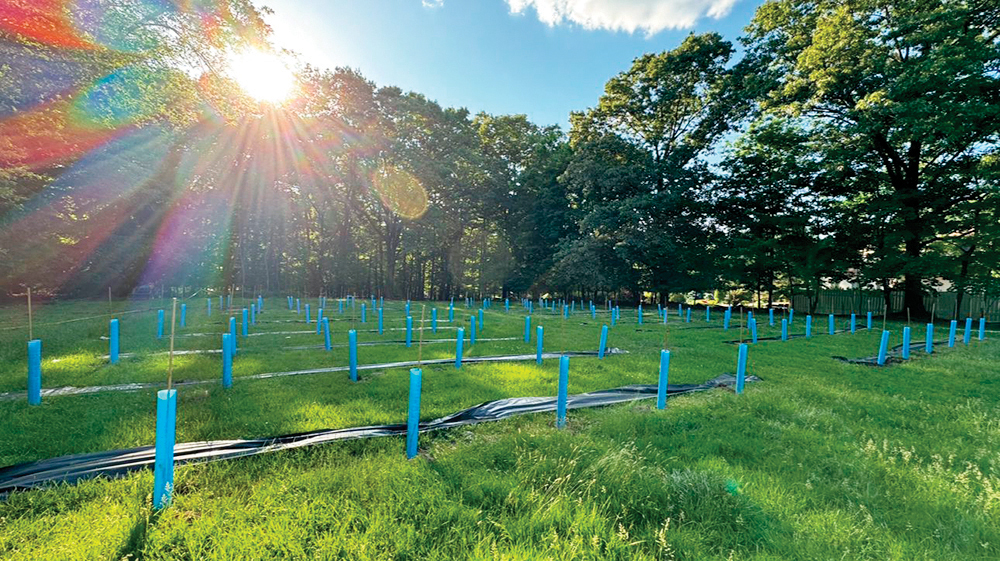
The following is a short Q&A with Baum:
What kinds of grapes do you plan to grow and what kind of wine will be made from them?
My vineyard contains eight different varieties of grapes with a total of 300 vines currently in the ground including the French hybrid Burdin 6055, which is said to make great red wines and be less susceptible to problems of other grape varieties that require heavy chemical spraying.
The Burdin 6055 vines are not available commercially from any grape-growing nursery. Most commercial growers have never even heard of this variety, and I’m propagating them myself in my vineyard nursery, which I plan to significantly increase next year to grow innovative grapes like B6055 and heritage grapes like the Iona, which was developed here in Rockland on Iona Island, near Bear Mountain, in the mid-1800s.
Iona is a grandparent of the Cayuga White grape, which makes a nice wine in a variety of approachable styles and has proven itself best for organic growing in the East.
I also have Chambourcin, Regent, Landot Noir, Bianca, Itasca and Vidal Blanc. My vineyard manager has my Delaware grapes, a native species, at his place in northern Rockland County.
What have you discovered in this process that makes winemaking a unique occupation?
Because running a vineyard and making wines are such passionate endeavors, one of the unique aspects of the business is that vineyard owners readily share their experiences with other vineyards owners. This may in part be driven by the fact that farming has so many challenges—in particular managing a vineyard—that collaboration almost becomes a necessity. It’s basically acknowledging that we’re all in this together.
What history do you have of the property you purchased and what additional plans do you have for the property?
When the son of the late Stas and Dr. Helen Salowey came to visit the property for the first this past summer since he sold it over 20 years ago, I was able to get a lot of background and details of their winemaking endeavors, plus he sent me the full appellation control log for his parents’ winery from 1960 to 1990, which contains all details, recipes and production notes for the wines the Saloweys made.
I have a local kosher winemaker that I’m initially working with, and plans for a reliable certification are already in place. I’ve been in contact with kosher winemakers in California and Italy, too. Ultimately, I would like to do events with these other wineries and possibly offer food and wine tours through High Tor Vineyards. By reading The Jewish Link’s Wine Guide this year, I discovered the Family Baum Winery in Israel, so that’s a winery I’ve been in touch with and hope to visit.
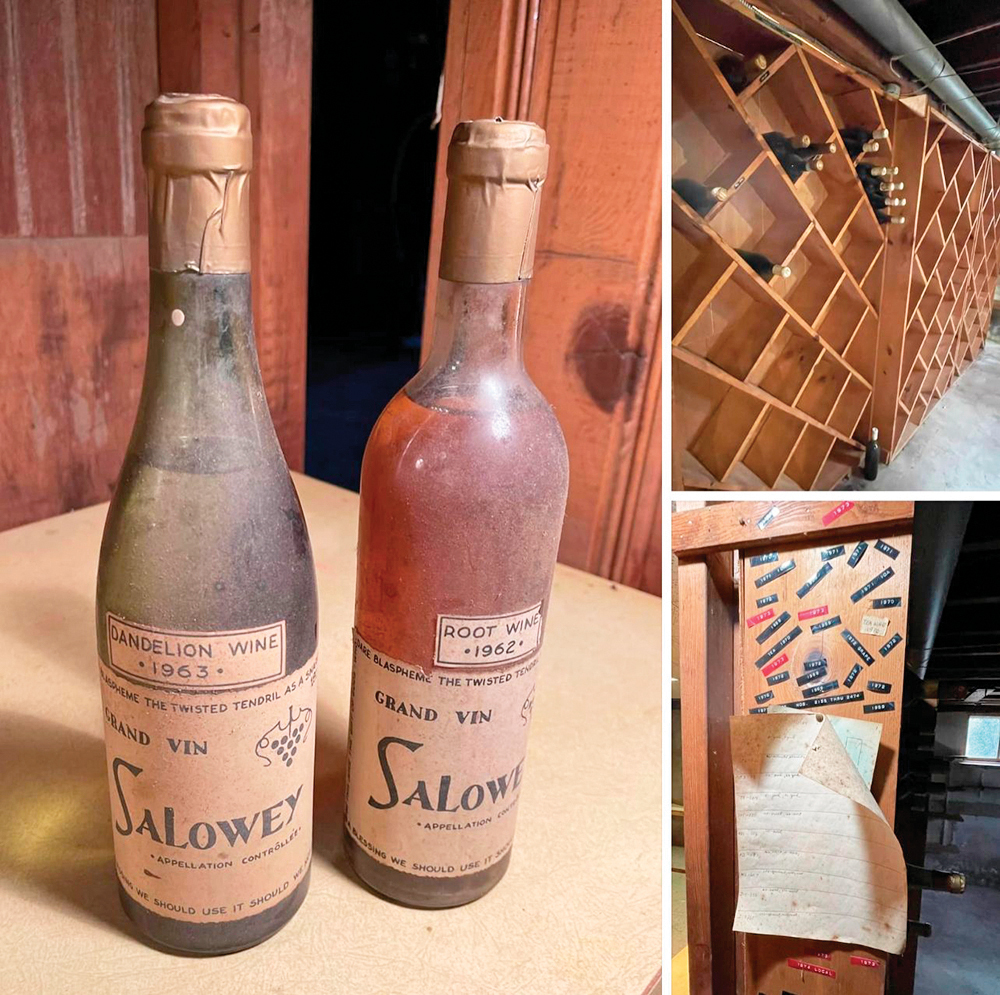
Next year, besides expanding the onsite vineyard nursery to accommodate hundreds of additional vines… I plan to add a small vineyard at my current home in New City, two miles south of my farm, and will look for additional vineyard space upstate.
At the farm, I will add beehives plus extensive flowers in and around the vineyard, as well as other fruit trees, possibly some chickens.
There are a couple of other frum farmers and food entrepreneurs that I plan to work with, as well, for tastings and other events at various locations.
When will your wine be ready to drink?
My Burdin 6055 red wine will be the first-of-its-kind kosher wine, but people will need patience to try it. Orlah, in Jewish law, prohibits eating fruit for the first three years from trees, and grapevines are considered trees. Interestingly, orlah coincides with good agricultural practices. Most vineyards cut off the flowers right away to allow all the plants’ energy to be directed to the roots and leaves for better future harvests.
To learn more about High Tor Vineyards, visit https://www.hightorvineyards.com/.


